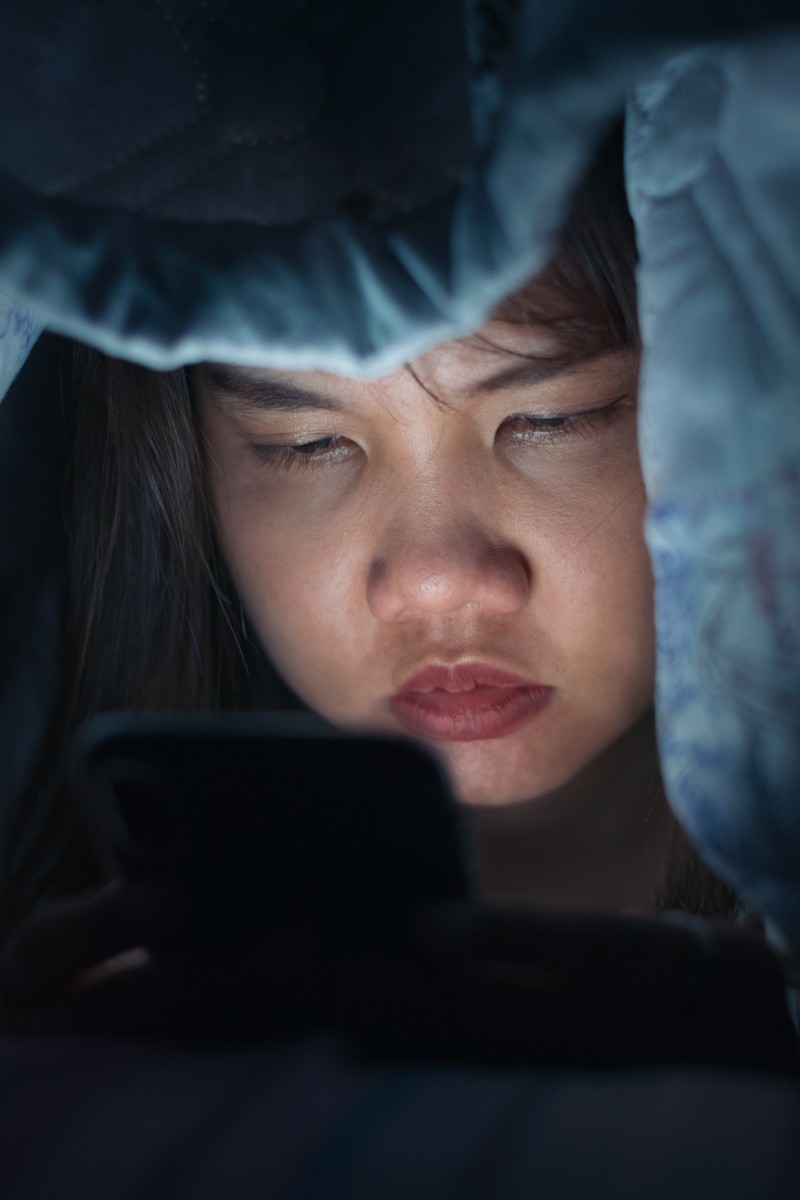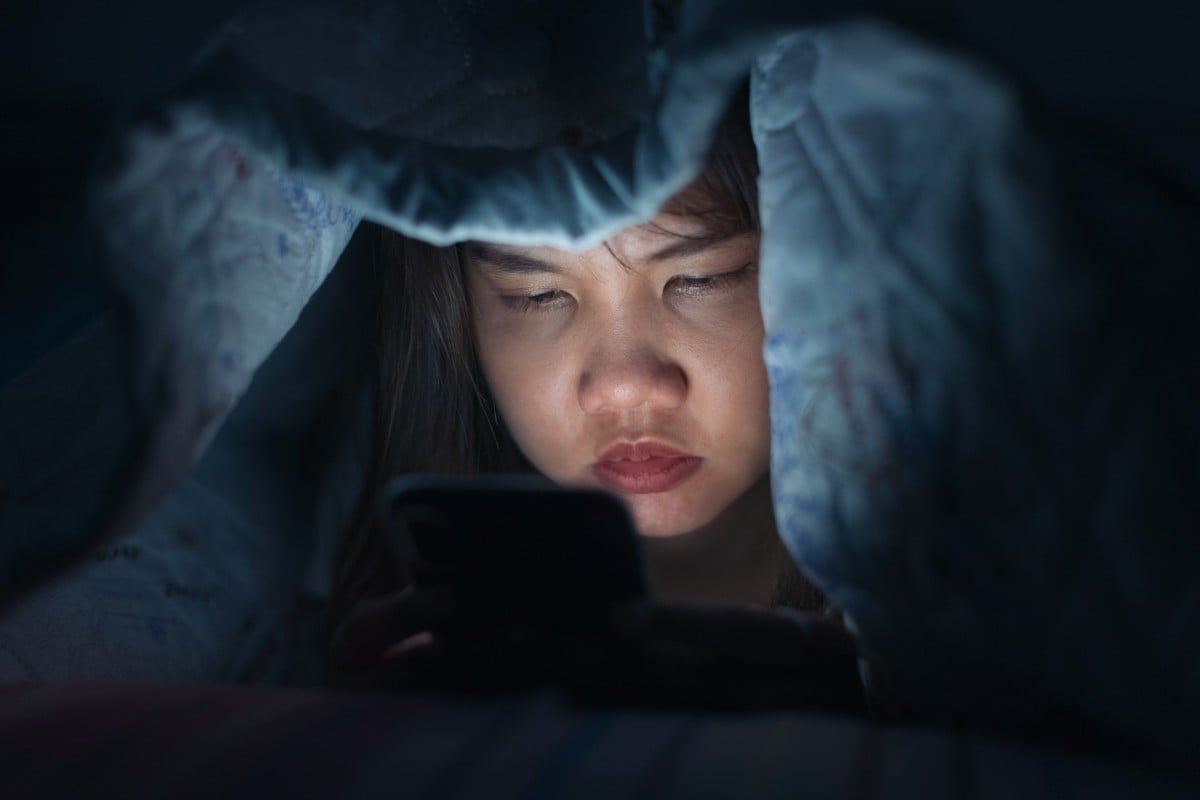
Depression, cyberbullying, and poor mental health: How social media is leading to girls suffering in real life
A new study has found that girls are spending more time on social media than boys, and it is harming their mental health

Many more teenage girls in Britain are suffering from depression than boys, and the cause could be the amount of time they spend on social media, new research reveals. Specifically, online bullying and poor sleep are to blame for their low mood.
As many as three-quarters of 14-year-old girls who suffer from depression also have low self-esteem, are unhappy with how they look and sleep for seven hours or fewer each night, the study found.
“Girls, it seems, are struggling with these aspects of their lives more than boys, in some cases considerably so,” said Yvonne Kelly, a professor at University College London, who led the team behind the findings.
Ditch your smartphone if you want to be happy: one Gen Z kid’s opinion
The results are worrying, as they add to the growing evidence that many more girls and young women show a range of mental health problems than boys and young men, and about the damage these can cause, including self-harm and suicidal thoughts.
The study is based on interviews with almost 11,000 14-year-olds who are taking part in the Millennium Cohort Study, a major research project into children’s lives.
It found that many girls spend far more time using social media than boys, and that they are much more likely to display signs of depression linked to their interaction on social media sites.
Mental Health Awareness Week: A self-help list for teenagers
It found that two in five girls spend at least three hours a day on platforms like Instagram and Facebook compared to one in five boys.
“The link between social media use and depressive symptoms was stronger for girls compared with boys. For girls, greater daily hours of social media use corresponded to a stepwise increase in depressive symptoms,” explained Kelly.
For example, while 7.5 per cent of girls and 4.3 per cent of 14-year-old boys have been the victim of online harassment, 35.6 per cent of girls who are depressed have experienced it – double the 17.4 per cent of boys who have done so.
Kelly’s team found similar gender contrasts when looking at other aspects of teenagers’ behaviour.
Social media is also closely associated with poor sleeping habits, especially among 14-year-olds showing clinical signs of depression. While just 5.4 per cent of girls and 2.7 per cent of boys overall said they slept for seven hours or less, 48.4 per cent of girls with low mood and 19.8 per cent of such boys said the same. Half of depressed girls and a quarter of depressed boys said that they suffer from disrupted sleep “most of the time”.
The authors say the sleep disruption is due to young people staying up late to use social media and being woken up by alerts coming in to their phones beside their beds. Their findings are published on Friday in EClinicalMedicine, a journal published by the Lancet.
Limiting your Facebook, Instagram and Snapchat use can lower depression and loneliness
“Inevitably there is the chicken and egg question, as to whether more dissatisfied children, who to begin with are less pleased with their body shape and have fewer friends then spend more time on social media. Nonetheless, it is likely that excessive use of social media does lead to poorer confidence and mental health,” said Prof Stephen Scott, the director of the national academy for parenting research at the institute of psychiatry, psychology and neuroscience at King’s College London.
Government ministers and Simon Stevens, the chief executive of the National Health Service in England, have called on social media companies to do much more to limit the amount of time young people spend using their platforms. Stevens has suggested taxing companies to help the NHS cover the costs of treating growing numbers of under-18s suffering problems such as anxiety, depression, eating disorders and psychosis.
But Dr Nihara Krause, a consultant clinical psychologist who specialises in teenagers’ mental well-being, cautioned against solely blaming social media for the huge recent rise in mental illness among under-18s. “Depression and all mental ill-health conditions arise due to a range of complex factors, usually a biological, psychological and social mix,” she said.
LGBT teenagers exhibit higher levels of depression, says British study
Shannon McLaughlin, 18, from Lancashire in the north of England, has opened up about how social media has harmed her mental health.
“Since being diagnosed with depression and anxiety in my early teens, my mental health has definitely been affected by social media. The sad truth is that people mostly share the positive things about life on social media, without showing the negatives. This really affected me when I was struggling with my mental health and would constantly scroll through Facebook and Instagram. Seeing that everyone was happy and enjoying life made me feel so much worse. In fact, it made me feel like I was doing something wrong. Why was I feeling so different to everyone else?
“It not only affected how I was feeling about myself mentally, but also physically. I was constantly confronted by women with unattainably skinny bodies who were praised for the way they looked. Even though I was a size 10, it really affected the way I looked at my own body. This was only made worse by the abundance of diet fixes and skinny culture promoted by ‘influencers’, whose posts are broadcast to thousands of people every day.”
A psychologist's expert tips on how to have a healthier relationship with social media
McLaughlin now volunteers regularly, and is a member of the National Citizen Service, a development programme British teens.
“When I was 16, I decided it was important for me to invest time in new friends and people that made me feel positive in real life. That’s when I decided to go on National Citizen Service. NCS was life-changing for me. It made me connect with real people, build my confidence and feel less alone. It’s so important for young people to make real connections without hiding behind a text message or a happy social media post.
“It’s so easy to forget the importance of real connections when we constantly have hundreds of people that we’re trying to impress at our fingertips. I think it’s important for young people to look up from their phones and focus more on the world around them, and the amazing connections that they can make there.”
